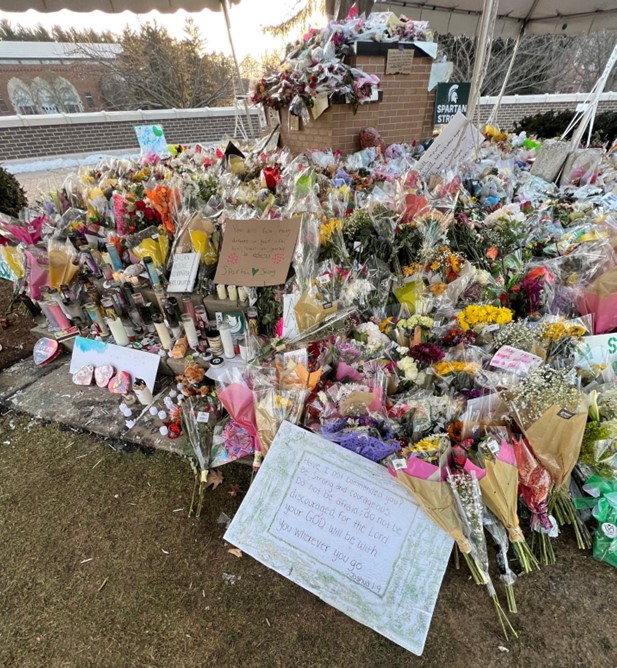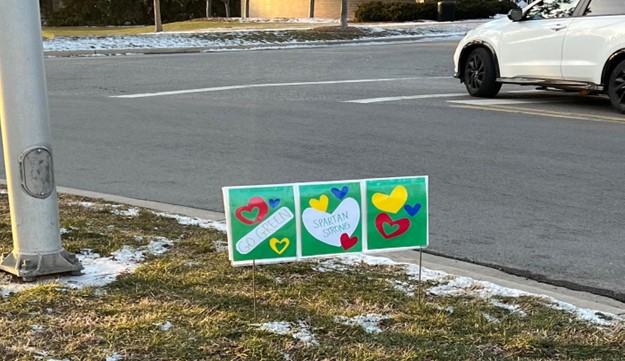On Feb.13, three MSU students were killed by a shooter who was eventually identified as Anthony Dwayne McRae, and five other students were seriously injured. When confronted by officials after the campus shooting, McRae was equipped with two handguns, a ton of ammunition, and a list of targets said the East Lansing Police Department in a statement released on the morning of February 14th.

Kennedy Robinson
Flowers are placed on the campus of Michigan State University prior to a vigil on Feb. 24.Police found 43-year-old McRae about four miles northwest of campus after gunfire terrorized the East Lansing campus Monday evening, according to authorities.
Classes were canceled at MSU following the shooting and resumed the following week on Feb. 20.
The aftermath of the shooting left students with different viewpoints on how soon to return to campus.
“I couldn’t even go on campus after everything that happened, I felt like the school I used to know and love now had a very eerie feeling. I’m not sure when I’ll return, but I’m happy my professors are willing to work with me,” said political science senior Angela Solomon.
Several students sought out alternative therapies to lessen the stress brought on by the trauma of the school massacre.
One student who felt particularly supported by these remedies was communications senior Ariel Foster.
“I was able to utilize a lot of the therapy dog programs MSU offers, and I spoke with a counselor just to understand better how I’m feeling right now and to process everything that’s unfolded,” Foster said.
Others simply thought that spending more time away from school would demonstrate better understanding of the difficulties that many students are experiencing.
“I understand that maybe some students want to go back to campus sooner than later, but I think that a lot of students feel the same way that maybe a couple weeks would do a lot of people well, it’s hard to feel like you have time to heal and I have assignments due on Monday,” said education junior D’aja Whitfield.
Everywhere you look, Michigan State University students are getting better on their own terms.

Kennedy Robinson
Signs of support were placed throughout campus and the city of East Lansing welcoming students back to town.